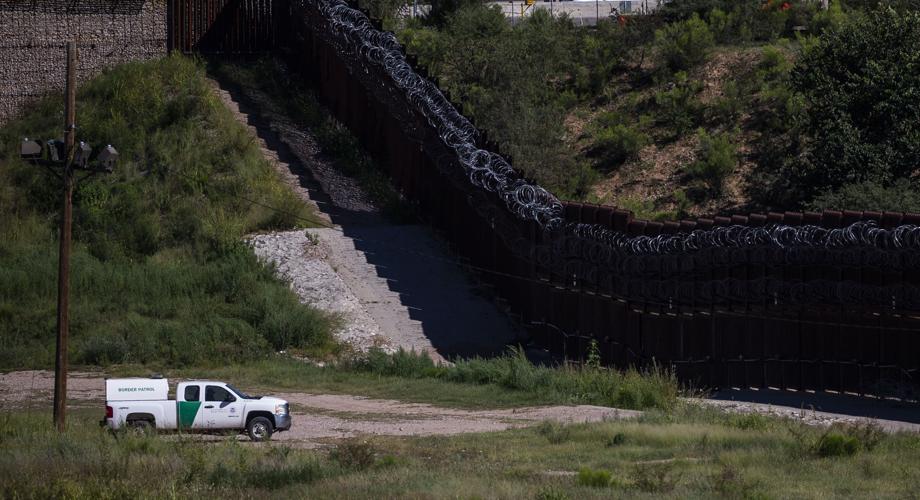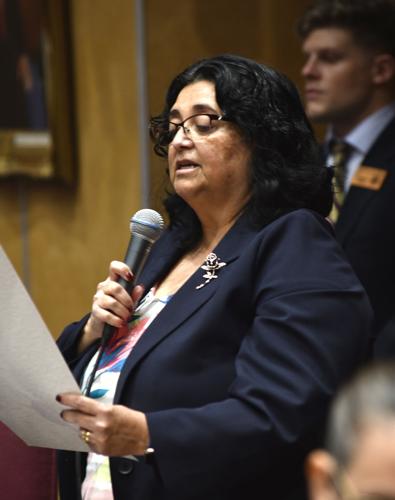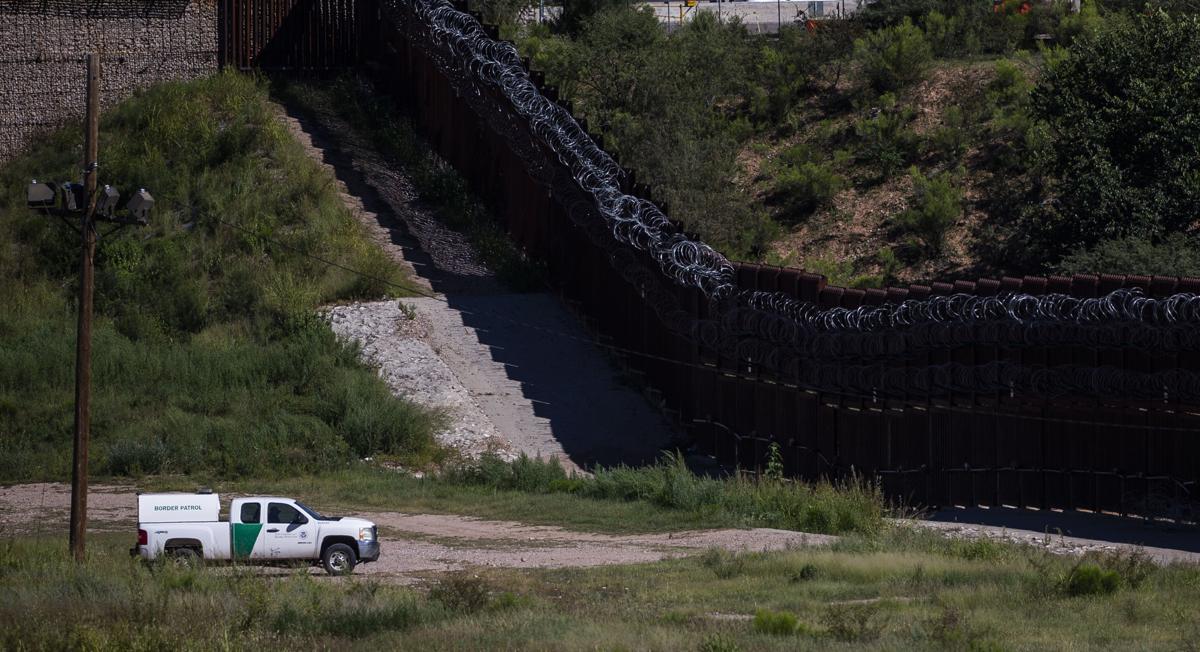PHOENIX — Saying the federal government has failed Arizona, state lawmakers voted Wednesday to let police here start arresting people who have entered the country illegally.
The Senate voted 16-13 along party lines to make it a state crime to enter the U.S. at any place other than a port of entry. The measure makes it a misdemeanor. But the real teeth in SB 1231 are in a provision that allows a state judge, dealing with someone who was arrested by local police, to instead essentially order the person deported.
House Republicans followed suit a short time later, giving their approval to HB 2821 and HB 2748 which are similar to the Senate bill, preliminary approval on voice votes. All that came over unanimous opposition from legislative Democrats
But the entire exercise and floor speeches may prove to be little more than political theater allowing both sides to express their views on border security, the role of the state and what many on both sides of the political aisle say is the failure of the Biden administration to staunch the flow of migrants.
Gov. Katie Hobbs made it clear in her first State of the State address last year that the problems at the border are a federal issue, Christian Slater, the governor’s press aide, said Wednesday. And he said Hobbs has taken actions on her own to improve border security and address the flow of fentanyl.
And what does Hobbs think of the latest effort led by Republican lawmakers?
“SB 1231 is unconstitutional, will not secure the border and will drive away businesses and jobs from Arizona,” Slater said. “She will not sign it.”
Rep. Alexander Kolodin, R-Scottsdale, may have foreseen her arguments — and her response.
“The Constitution reserves to the states the right of self-defense when Congress cannot act expeditiously in the face of an invasion,” he said. “And, make no mistake, it is an invasion.”
But Kolodin, in his floor speech earlier in the day, acknowledged that Hobbs gets the last word.
“At the end of the day, Arizonans depend on the occupant of the ninth floor to protect them,” he said, referring to where Hobbs has her office in the Executive Tower. “And I want to know; will Katie Hobbs protect us?”
Nothing about that anticipated veto, however, curtailed the extensive debate about the issue.
Democrats argued that it will lead to racial profiling, particularly in cases where police have not actually seen someone come through or over the border fence. And Sen. Janae Shamp, R-Surprise, the sponsor of SB 1231, acknowledged under questioning that the legislation is designed to allow police to use “probable cause” to arrest someone.

In arguing against the legislation, Sen. Rosanna Gabaldon, D-Green Valley, shared her personal experiences of being pulled over repeatedly by law enforcement. “And when I asked why they pulled me over, they said, ‘You don’t belong here, you are here illegally, I need you to prove your citizenship,’" she said.
“How will any member of law enforcement know if you have crossed the border legally or illegally other than by profiling you based on your skin color?” asked Sen. Priya Sundareshan, D-Tucson. “This gives any law enforcement officer who want to the license to harass people of color, detain them and make them prove their citizenship or that they are here lawfully.”
Sen. Rosanna Gabaldon, D-Green Valley, shared her experience of what occurred in 2010 after the Legislature approved SB 1070 which, like this, was designed to empower state and local police to stop, question and arrest people who they believe are not in this country legally.
“Within 12 months, I was pulled over more than 10 times by law enforcement,” she recalled. “And when I asked why they pulled me over, they said, ‘You don’t belong here, you are here illegally, I need you to prove your citizenship.’ “
But Sen. Anthony Kern, R-Glendale, had a different take on the need for the legislation.
“The racist card is null and void when it comes to protecting our citizens of all colors and all nationalities,” he said.
And Rep. Teresa Martinez, R-Casa Grande, said it would be wrong to see what is going on along the border as a simple matter of people coming to this country to seek a better life.
“These are not poor immigrants coming across from Mexico or Honduras or El Salvador,” she said. “These are violent people coming from China, from Russia, from Iraq, from Egypt.”
Underlying much of the debate is the question of whether the state even has the right to do this.
Arizona fought this legal battle before with SB 1070 which went all the way to the U.S. Supreme Court.
In a divided decision, the justices voided several provisions including one that would have allowed police to make warrantless arrests if they believe a person is violating federal immigration law. Justice Anthony Kennedy, writing the majority decision, said that conflicts with federal law, allowing the state to decide, without input from the federal government, whether an arrest is warranted.
“This is not the system Congress created,” the justice wrote. He said only when the attorney general has granted enforcement authority to local police can they decide that someone is here illegally.
Shamp, for her part, argued that allowing police to arrest border crossers is legally different.
But there are other complications.
By its very terms, the legislation debated Wednesday says it is a defense against prosecution if someone actually has been granted legal asylum. But it does not grant the same protections for those who have only applied for that status — something that most border crossers now routinely do — even though the U.S. Department of Justice says that even an application for asylum will stop deportation and allow someone to remain.
Separately, Sen. David Gowan, R-Sierra Vista, pointed out that the Supreme Court did not void all of SB 1070.
“Officers can ask and dig to see if somebody driving is here illegally,” he said. “That’s legal,” he said, calling that “the meat of the bill.”
That, however, does not tell the whole story.
What is known as the “papers, please” provision of SB 1070 does require that police officers, when possible, check the immigration status of those they believe are not in the country legally.
But that can occur only when someone has already been pulled over for any other reason. It does not permit traffic stops to check legal presence.
And the Supreme Court never said such questioning was legal. Instead, the justices said they didn’t have enough information about how it would be enforced to make a decision, sending the case back to a federal judge in Phoenix.
Before that could be decided, however, the challengers agreed to drop the case in exchange for some state-issued guidance on how police could enforce it. Most notably, that tells officers they cannot detain anyone for longer than necessary for the original reason they were stopped.
That means no delay while waiting for a radioed response from federal immigration agencies about whether the person is legally entitled to be in this country. And it also means that even if the person is not here legally, police cannot keep them from leaving while awaiting an immigration officer to come and take custody unless they are under arrest for some state offense.
Sen. John Kavanagh, R-Fountain Hills, a former police officer, said he sees nothing wrong with having local police pick up those who are not here legally.
“Cooperation between local and state law enforcement and federal law enforcement goes back hundreds of years,” he said. And Kavanagh said the legislation is justified.
“When you have a situation like you have today, when the federal government has created a policy where they are not enforcing federal immigration law that negatively impacts all the states, especially border states like Arizona, when you have a situation where the federal government has turned the Border Patrol into a ‘welcome wagon’ that actually encourages more illegal immigration, that is the time that states must step up and do their part,” he said.
And what of the ruling on SB 1070?
“If we have to go back to the Supreme Court, we will,” Kavanagh said, noting that its makeup is far different now than it was in 2012 when it issued its original ruling. “Frankly, I think that this Supreme Court will back the protection of the borders of the United States.”
Not all the arguments were about profiling, discrimination or crime.
“This bill is likely to put our economy at risk,” said Senate Minority Leader Mitzi Epstein.
The Tempe Democrat said the fallout from the publicity Arizona was the target of boycotts, costing the state $147 million in revenues.
But Senate Majority Leader Sonny Borrelli, R-Lake Havasu City, said the flip side is that people here illegally suppress wages.
“Now they can be exploited by a greedy employer because they can hire somebody cheaper, which can affect your constituents,” he told colleagues.






